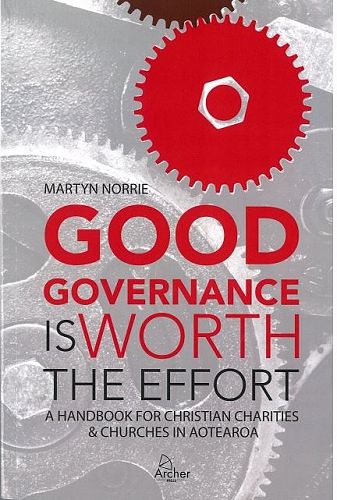
Governance Survey: how are you doing?
The Diocesan Council Trusts Board oversees all appointments to various Trusts associated with the Diocese of Dunedin. As part of finding out more about how things are going with various boards and committees, we have developed a self assessment survey. We also include information below about a new Governance resource for the wider church as well.
We are encouraging every board member to compete this (anonymous) survey which is based on a similar questionnaire that was part of the Governance Workshop that was held in August 2019. Information will be confidential to the Trusts Board, but we will feedback individually to each board what the survey reveals.
You can complete the survey here before 28 February 2020.
We'd also like to make Board members and Parish Vestries/Local Church committees aware of a great resource that has recently been published: Good Governance is Worth The Effort: A Handbook for Christian Charities & Churches in Aotearoa by Martyn Norrie
It covers topics such as:
- What does a Governance Board Do?
- Do Boards chance and develop as an organisation grows and ages?
- What are the implications of the Treaty of Waitangi for boards in Aotearoa New Zealand?
- What makes an effective Chair?
- What are the elements of an effective Board meeting?
Each chapter has a series of reflective questions which are useful for individual and Board reflection (if everyone is reading the book together!)
An excerpt from Chapter 3 (pg 18-19) What does a governance Board Do? follows, where the author discusses three types of boards he has encountered: Chronies, Controllers and Cooperators:
Controllers
Some boards have a strong conviction that the CEO or Senior Pastor (Priest) is their "servant"and they can be extremely directive and controlling in their relationship with him or her. This often occurs when a new leader succeeds the founding leader and the founding leader stays on the board. The founding leader and their "cronies" may be invested in seeing that the status quo is upheld and can be resistant to any change or innovation that anew leader wants to initiate. A call for constant detailed reporting on the leader's activities... and domination of the leader at Board meetings is symptomatic of this kind of board. The broad is often not open to new ideas and is resistant to any changes that the leader proposes... This is an unhealthy situation and there is a real danger that the CEO will leave the organisation rather than put up with constant negative challenges fro the Board....
This book is available in two ways:
- Directly from the Aurthor (Martyn Norrie) at the price of t $27 each plus postage of $5.50. This is the fastest method of gaining a copy. Contact Martyn Norrie at martynnorrie@gmail.com
- Alternatively you can go on line and order the book through lulu.com. This takes 2-3 weeks to supply.
We are also purchasing some copies for the Diocesan Ministry Library - contact Michael Godfrey educator@calledsouth.org.nz if you would like to borrow this.
Gallery

